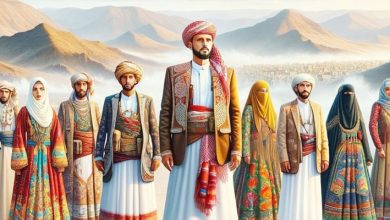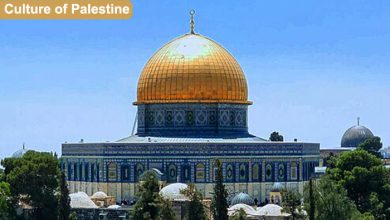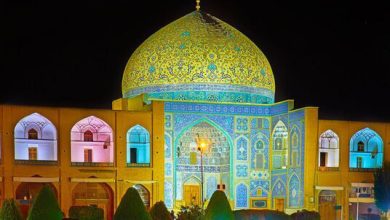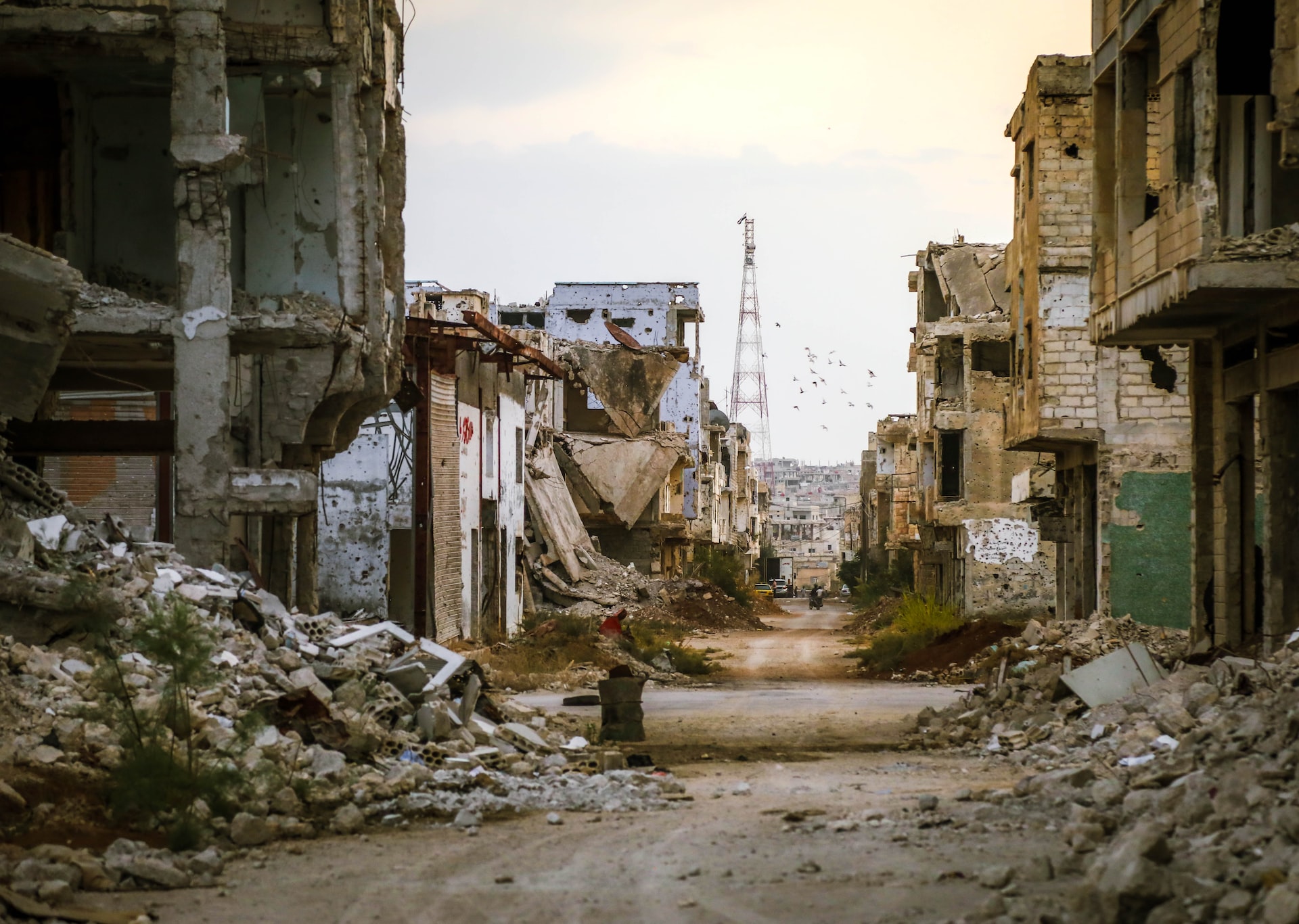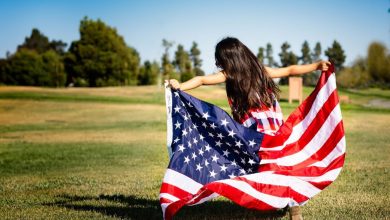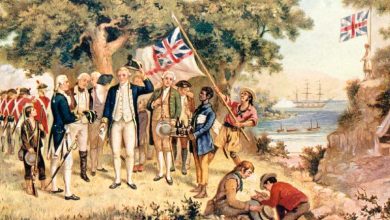Culture of Malaysia with General Information
Total Size: 329,750 square km
Capital: Kuala Lumpur
Region: Southeast Asia
Low Point: Indian Ocean 0 m
High Point: Gunung Kinabalu 4,100 m
Climate: Tropical annual southwest & northeast, monsoons
Major cities: Kaula Lumpur, Klang, Johor Bahru
Type of Government: Constitutional monarchy
Independence: 31 August 1957
Currency: Ringgit (MYR)
Overview of Malaysian Culture
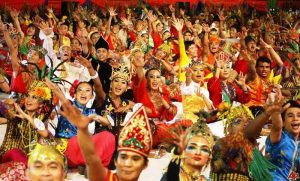
Malaysia is a country that is deeply rooted in cultural diversity and has a rich history of many different cultural influences. The people of Malaysia have a unique culture that is composed of various elements from the various ethnicities that make up the population. Malays, Chinese, Indians, and many other ethnicities have each contributed their own unique cultural elements to the Malaysian culture. This includes aspects such as language, religion, food, music, clothing, and even etiquette. Malaysians also have a strong sense of national identity and pride, which is reflected through their loyalty and respect for the country and its people. With such a wide variety of cultural influences, Malaysian culture is incredibly diverse and vibrant.
Diversity Within Malaysian Culture
Malaysia is a vibrant country with a rich and diverse culture. It is made up of various ethnic groups and religions, each of which contributes to the cultural and social fabric of the country. Malays, Chinese, Indians, and other indigenous groups all play an important role in the cultural identity of Malaysia. This diversity has resulted in a unique blend of cultures and traditions that make Malaysian culture unique and vibrant. There are numerous festivals and celebrations, along with traditional dances and music, that represent Malaysia’s diverse culture. Additionally, there are a variety of cuisines that have been influenced by the different cultures and religions in the country. Malaysia’s rich culture is something that should be celebrated and shared with all.
Cultural Values and Traditions
Malaysia is a country rich in cultural values and traditions that have been passed down through generations. It is an incredibly diverse nation, with many different religions and ethnicities making up the population. As a result, Malaysian culture is a mix of traditional customs and modern influences. The most prominent cultural values are respect for elders, hospitality, hard work, and loyalty. Furthermore, traditional Malaysian religious ceremonies, festivals, and celebrations are also highly prominent in the country. These celebrations often involve aspects of both traditional and contemporary culture, such as colorful costumes, music, and dance. Additionally, Malaysians are known for their culinary traditions with a wide variety of dishes from all over the world. All in all, Malaysian culture is a unique blend of tradition and modernity that is sure to make for an interesting experience for visitors.
Social Customs and Practices
Malaysia is a multi-cultural country with a diverse range of social customs and practices. Its culture is deeply rooted in the country’s history, as well as its many different ethnicities. The Malays are the largest ethnic group in Malaysia, and their cultural values and traditions are widely respected and practiced. Other ethnicities such as the Chinese, Indians, and indigenous peoples also have their own distinct cultural heritage and practices. Religion also plays an important role in Malaysian culture and is a major factor in organizing and identifying social customs. Examples of Malay social customs and practices include greeting with a handshake, respect for elders, and the practice of taking off shoes when entering a home. Malaysians also have a strong sense of hospitality and take great pride in providing a warm welcome to visitors.
Influences on Malaysian Culture
Malaysian culture is a unique blend of influences from its many ethnic groups, including Malay, Chinese, Indian, and indigenous Borneans. This diversity shapes the cultural traditions of the country, from its rich cuisine to its vibrant festivals and customs. Malaysian culture is also shaped by its colonial history; the country was part of the British Empire from the 19th century until 1957, and many of its customs reflect this. For example, cricket was introduced by British settlers and is still popular in Malaysia today. The country’s colonial past also influences its architecture, language, and education system. Religion plays an important role in Malaysian culture; Islam is the official religion, and many of the country’s cultural practices are intertwined with its Islamic faith. Additionally, the country has a strong belief in the supernatural, and traditional shamanistic practices are still common in many areas. Finally, Malaysian culture has been strongly influenced by its natural environment, with the country’s lush rainforests and stunning beaches providing the backdrop for many of its cultural activities.
Religion and its Influence on Malaysian Culture
Malaysia is a multi-cultural and multi-religious country, and religion has played an important role in the development of Malaysian culture. Islam is the predominant religion in Malaysia, and it has had a major influence on the art, music, literature, architecture, cuisine and other aspects of the country’s culture. The Malaysian Constitution states that all citizens must adhere to the religion of their choice, ensuring respect and harmony amongst different religious communities. Other religions, such as Buddhism, Hinduism and Christianity, are also widely practiced, each of which has added to the unique cultural identity of Malaysia. With its diverse religious heritage, Malaysia has become a melting pot of cultures, allowing its citizens to appreciate the beauty of mutual respect and understanding.
Holidays and Festivals
Malaysia is a vibrant and diverse country full of culture and tradition, and there are numerous holidays and festivals celebrated throughout the year. The most popular holidays in Malaysia include Hari Raya Aidilfitri, Chinese New Year, Deepavali, Hari Raya Haji, Gawai, and Christmas. Each of these festivities are celebrated with much pomp and grandeur, and bring people together regardless of their religious, cultural or racial backgrounds. Malaysians also celebrate lesser-known holidays such as Kaamatan, a harvest festival of the Kadazan-Dusun people of Sabah, and Pesta Gawai, a celebration of the Iban people of Sarawak. As these holidays and festivals are an integral part of the Malaysian culture, they provide a unique platform to understand the diversity of the nation and its cultural richness.
Language and its Influence on Malaysian Culture
Malaysia is a culturally diverse nation, and language plays an important role in its culture. The national language is Bahasa Malaysia, but English and Chinese are also widely spoken. The official language of instruction in schools is Bahasa Malaysia, but English is also used in some schools. Language has a significant influence on Malaysian culture, helping to shape the national identity and providing a common language for all Malaysians. It also serves to unite different ethnic groups and serves as a tool for communication. Language is integral to cultural events and can help create a shared understanding of customs and values. In addition, language plays an important role in the development of literature, music and other artistic forms in Malaysia.
Arts and Music in Malaysian Culture
Malaysian culture has a vibrant tradition of arts and music, with influences from all the races and religions that make up the country. The country has a rich history, with a variety of art forms that reflect its diverse culture. Traditional Malaysian art forms include batik, weaving and woodcarving, all of which are highly regarded internationally. Music is also popular in the country; traditional music from the Malay, Chinese, Indian, and indigenous peoples is regularly performed, while more modern genres such as rock, hip hop, and pop are also popular among the younger generation. Malaysian culture is also greatly influenced by its neighbouring countries, such as Indonesia and Singapore, as well as by the traditions of the Malay royal courts. All in all, Malaysian culture is a vibrant mix of the old and the new, and it is this diversity that makes the country so unique and fascinating.
Economic Factors Influencing Malaysian Culture
Malaysia is a country with a rich culture that has been shaped and influenced by economic, political, and social factors. Economic factors have had a strong impact on the culture of the country, as it is heavily reliant on trade and commerce. Malaysia’s economy is driven by exports, with commodities such as petroleum, rubber, and palm oil providing a significant portion of the country’s income. The country has also experienced a period of rapid economic growth and development in recent years, resulting in a greater focus on technological innovation, improved infrastructure, and increased foreign investment. These economic advances have been accompanied by a shift in Malaysian culture, with increased emphasis placed on globalisation, modernisation, and entrepreneurship. These changes have had an effect on traditional values and customs, as well as new approaches to living and working that have emerged. Economic factors have thus had a significant impact on Malaysian culture, influencing the way people think, act, and live.
Food and Cuisine in Malaysian Culture
Malaysian cuisine is one of the most diverse in the world, reflecting the multi-ethnic and multi-cultural identity of the country. The cuisine reflects the many different cultures that have influenced the country, such as Chinese, Indian, Indonesian, and Thai. The cuisine is known for its rich flavors, exotic spices, and vibrant colors. Common ingredients used in Malaysian cuisine include coconut milk, ginger, lemongrass, tamarind, and galangal. Popular dishes include nasi lemak, rendang, satay, and char kway teow. Malaysian food is also heavily influenced by its geography, with fresh seafood, tropical fruits, and vegetables all featured on the menu. Malaysian culture is further reflected in the country’s unique festivals, such as the Malaysian Food Festival, held annually in Kuala Lumpur. This festival celebrates the country’s amazing array of dishes, and allows visitors to sample the country’s many different flavors. Malaysian cuisine is a delicious and exciting way to experience the culture and culinary tradition of this vibrant country.
Gender Roles in Malaysian Culture
Malaysia is a country with a diverse range of cultures, languages, and traditions. Among these, the traditional Malay culture has a strong focus on gender roles and expectations. Men are traditionally seen as the head of the household and in charge of providing for the family, while women are tasked with managing household duties such as cooking and cleaning. Women are also often expected to be more submissive and obedient in relationships. These traditional gender roles in Malaysian culture also extend to the workplace, where men are often more likely to be in positions of leadership and power. Although these traditional gender roles are still prevalent in many parts of the country, there are signs that attitudes are shifting as Malaysia becomes more modern and progressive.
Relationships and Interactions with Other Cultures
Malaysia is a multi-cultural society comprised of people from many different ethnic and religious backgrounds. As such, its culture has been shaped by a number of different influences, from its Malay, Chinese, and Indian past to its British colonial influence. This has resulted in a strong emphasis on relationships and interactions with other cultures. Malaysians are known for their hospitality, and respect for other cultures is a major part of the national identity. The government has also been proactive in promoting mutual understanding and respect between its citizens and those from other countries. Through cultural events, exchange programs, and other initiatives, the country continues to embrace its diversity and foster meaningful relationships between its people and other cultures.
Social Etiquette and Manners
Malaysia is a country with strong cultural values, including high standards of social etiquette and manners. It is important to understand and respect the customs and traditions of the Malaysian people to ensure a positive and respectful experience. Common courtesies such as greeting people with a smile, using polite language when speaking to people, and respecting personal space are all important aspects of good social etiquette in Malaysia. Other considerations include dressing modestly, showing respect for elders, and refraining from discussing topics such as politics and religion in public. Being mindful of these customs and displaying good manners will help to ensure a pleasant experience for everyone involved.
Political Influence on Malaysian Culture
Malaysian culture has been heavily influenced by politics throughout its history. From the ancient kingdoms of Srivijaya and Melaka, to the nation’s current federal constitutional monarchy, politics has left a lasting impression on the culture of Malaysia. Traditional values, such as respect for elders and the importance of family, are still prevalent today and are heavily influenced by political ideals. Religion also plays an integral role in how Malaysia’s people interact with each other; Islam is the official religion of the country and influences many aspects of Malaysian life. As Malaysia continues to emerge as a global leader in the 21st century, its culture will no doubt be further shaped by political influences.
Education and its Influence on Malaysian Culture
Education is a key factor in influencing the culture of any nation, and Malaysia is no exception. Malaysian culture is influenced by a range of factors, including geography, history, and religious beliefs. Education plays an important role in shaping this culture, with Malaysia’s public and private schooling systems helping to provide a strong foundation for the country’s values and traditions. Education in Malaysia has a focus on providing a well-rounded education, with an emphasis on the sciences, math, and the humanities. This has resulted in a society that values knowledge and strives for success, with a strong focus on developing a knowledgeable and educated populace. Education has also been instrumental in fostering a sense of patriotism and national pride in Malaysia, with much of the country’s education system based around teaching students about the country’s history and culture. Education has also been crucial in helping to create a more equitable society, with the government prioritizing education for all Malaysians and providing equal access to learning opportunities regardless of gender, social class, or religion. Education has, thus, been a major factor in shaping the culture of Malaysia and continues to play an important role in fostering unity and progress within the country.
Environmental Effects on Malaysian Culture
The culture of Malaysia is shaped by the diverse influences of the many different ethnicities that inhabit the country. Malaysia is a multicultural and multiethnic nation, with the majority of the population being of Malay, Chinese and Indian descent. The environment has a strong influence on the culture of Malaysia, with the country’s tropical climate and abundance of natural resources making it an ideal habitat for many different species of plants and animals. This, in turn, has resulted in an environment that is rich in diversity, both in terms of flora and fauna, as well as in terms of the cultures that inhabit the country. The environment has also had a great impact on the traditional customs and values of Malaysian culture, with the majority of traditions being based around the environment, such as fishing and farming. The environment also plays a role in the development of Malaysian culture, with the country’s unique environment providing the perfect conditions for creativity and innovation to flourish.
Modern Technology and its Influence on Malaysian Culture
Malaysia is a country that has seen a significant rise in modern technology over the past few decades. This has had a number of effects on the culture of the nation, leading to changes in traditional practices and the acceptance of new ideas. The widespread presence of the internet and mobile phones has drastically changed the way that Malaysians communicate, in addition to providing them with access to a range of new sources of knowledge. This has opened up new avenues for education and entertainment, with many Malaysians now using the internet for work and leisure. Social media sites have also become popular, with people using them to connect with friends and family and to share news and opinions. Modern technology has also enabled a greater level of access to western culture, with Malaysians now able to explore new ideas and concepts from around the world. Furthermore, the advent of e-commerce has allowed Malaysians to access a greater range of products and services, leading to increased competition and an improved standard of living. All in all, modern technology has been a driving force behind many changes to the culture of Malaysia, and will continue to shape it in the years to come.
Impact of Malaysian Culture on the World
Malaysia is a unique country with a rich and diverse culture that has had a great impact on the world. Malaysia is a multicultural nation which has been influenced by many different cultures and religions, including Islam, Hinduism, Buddhism, and Chinese and Indian culture. The traditional Malaysian culture is based on respect, modesty, and hospitality, which has been embraced by many other cultures around the world. Malaysian food is also well-known and loved, with dishes such as Nasi Lemak, Satay, and Roti Canai being popular across the globe. Malaysian art and craftsmanship is also highly respected, with intricate wood carvings, batik fabrics, and traditional masks being highly sought after. Malaysia’s diversity, openness, and acceptance of other cultures have made it a warm and welcoming place for tourists and immigrants, and have helped to shape the world.
Popular Media and its Influence on Malaysian Culture
Malaysia is an incredibly diverse and vibrant culture, shaped by a variety of different influences from around the world. Popular media, such as television, film, and the internet have had a strong influence on Malaysian culture. From music to fashion, Malaysian culture is heavily influenced by the latest trends in popular media. Television and movies have had a profound influence on the way Malaysians see the world, while the internet has allowed Malaysians to access international media and become more connected with the world around them. Social media has also been a powerful tool for Malaysians to express themselves and spread messages of social change. Popular media has had a significant impact on Malaysian culture, and it continues to shape and evolve Malaysian culture.
Cultural Identity and Pride in Malaysia
Malaysia is a nation that is proud of its cultural identity and vibrant culture. The many different ethnic groups in the country have contributed to its diversity and richness, making it a unique and beautiful nation. Malaysians have a great sense of pride in their cultural identity, which is reflected in the way they express themselves through music, art, literature and cuisine. Through these cultural expressions, Malaysians can share their heritage and celebrate their identity as Malaysians. From the colorful festivals to the traditional costumes, Malaysians demonstrate their pride and appreciation for their culture. In addition, the Malaysian government has put in place several policies and initiatives to protect and promote the unique cultural heritage of its citizens. This includes preserving traditional practices, protecting endangered species and promoting cultural understanding. Malaysia is a nation with a deep sense of pride and identity, and it is something that is celebrated and cherished by its citizens.
LGBTQ+ Representation in Malaysian Culture
Malaysia has a long history of marginalizing members of the LGBTQ+ community. This is reflected in the country’s laws, which criminalize same-sex relations. Despite this, there has recently been a push to increase representation of LGBTQ+ individuals in Malaysian culture. Organizations such as the Malaysian AIDS Council and the Malaysian LGBT Chamber of Commerce are working to improve cultural acceptance and visibility of the LGBTQ+ community. In addition, there have been a number of initiatives to promote LGBTQ+ rights in Malaysia, including campaigns to educate the public on LGBTQ+ acceptance and to raise awareness of issues facing the community. Furthermore, there is a growing trend of LGBTQ+-related media, including films and television series, which are helping to normalize the representation of LGBTQ+ individuals in Malaysian culture. While progress is slow, the work being done to increase LGBTQ+ representation in Malaysian culture is significant and should be celebrated.
Role of Media in Shaping Malaysian Culture
Media plays an essential role in shaping Malaysian culture. It serves as a platform for the dissemination of ideas, values, and beliefs that can influence the way people think, interact, and make decisions. Through media, Malaysians are exposed to various ideas and ideologies from around the world that have an impact on their culture.
For example, media can be used as a tool to educate Malaysians on traditional values and customs, thus helping to preserve them. It also gives them access to international trends and cultures, thus widening their perspectives and increasing their awareness of different cultures. Additionally, the media can be used to promote the celebration of national holidays and important events, thus further strengthening the sense of national identity and unity.
Moreover, the media can be used to encourage Malaysians to participate in public discourse, thus promoting democratic values and principles. Through media, Malaysians can learn how to express their opinions and engage in meaningful dialogue with one another. This helps to foster a culture of respect and civility.
In conclusion, media plays an important role in shaping Malaysian culture. It serves as a platform for sharing and exchanging ideas, information, and values that can have a positive impact on the way Malaysians think and act.
Role of the Internet and Social Media in Malaysian Culture
The Internet and Social Media have played an important role in transforming Malaysian culture in recent years. With the widespread availability of the Internet, Malaysians have been able to access a variety of resources and content previously unavailable to them. This has allowed them to expand their knowledge of different cultures, religions, and ideologies, and to explore different perspectives and ideas. Social media platforms such as Facebook, Twitter, and Instagram have allowed individuals to connect with others from different backgrounds and to communicate more easily than ever before. The ability to communicate and access information quickly has had a positive effect on Malaysian culture, as it has allowed the people to access a variety of new ideas and knowledge. The Internet and Social Media have also had an impact on the way Malaysians interact with each other, creating a more connected and open society. Overall, the Internet and Social Media have had a significant impact on Malaysian culture, and they will continue to shape it in the future.
Role of Family in Malaysian Culture
Malaysia is a multicultural country populated by a variety of ethnic groups, each having its own unique culture. The family is an important part of Malaysian culture and plays an integral role in many aspects of life. The traditional Malaysian family is typically a nuclear family unit, with the eldest male having authority over the other family members. Families in Malaysia are expected to be loyal and supportive of each other, with strong bonds of trust, respect, and commitment. These values are seen as vital in order for families to flourish and be productive members of society. It is also common for extended family members to live together, with grandparents playing a major role in raising and helping to educate their grandchildren. The family is expected to provide emotional and financial support, as well as advice and guidance. The importance placed on the family in Malaysia makes it an integral part of its culture.
Rituals and Ceremonies in Malaysian Culture
Malaysia is a culturally diverse country, and as such, there are a wide variety of rituals and ceremonies practiced within its borders. Many of these rituals and ceremonies are rooted in traditional Malay, Chinese and Indian cultures. For example, the Malay wedding ceremony is a traditional and elaborate event, involving many cultural customs and practices. Similarly, the Chinese mooncake festival is celebrated in Malaysia, as are a number of Indian festivals such as Diwali, Holi and Vaisakhi. Additionally, other ceremonies such as the Muslim Hajj pilgrimage and the Hindu Thaipusam festival are observed in Malaysia. These rituals and ceremonies are important to the people of Malaysia and are a way of honoring and respecting the cultural heritage of the country.
Stereotypes and Misconceptions About Malaysian Culture
Malaysia is a country with a rich cultural heritage and a diverse population, but there are many stereotypes and misconceptions about Malaysian culture. Misconceptions range from the belief that all Malaysians speak the same language to the idea that all Malaysians practice the same religion. In reality, there are several distinct ethnic groups in Malaysia, with different languages, customs, and religions. While the majority of Malaysians are Muslim, there are also significant populations of Buddhists, Christians, Hindus, and other faiths. Additionally, English is widely spoken in Malaysia, and many people are bilingual, speaking both English and a local language. Despite the diversity of Malaysian culture, stereotypes still persist, and it is important to recognize and understand the complexity of Malaysian culture.
Challenges Faced by Malaysian Culture
The Malaysian culture is a diverse and complex blend of various ethnicities and religions. As a result, it faces a plethora of challenges related to its diversity. One of the major challenges that Malaysian culture must face is the challenge of preserving and promoting its traditional values in the face of globalization. There is also the challenge of promoting unity among the many different ethnic and religious groups in the country. Additionally, the cultural values of Malaysia are also threatened by the influx of foreign cultures and ideas. This can lead to a clash of values between the traditional and the modern, making it difficult to find a balance. Finally, there is the challenge of maintaining a sense of national identity and pride within the Malaysian culture in the face of such diversity. All of these challenges must be addressed in order for Malaysian culture to thrive and progress.
Future of Malaysian Culture
Malaysia is a country of diverse cultures, religions, ethnicities and languages which creates a unique and vibrant society. The future of Malaysian culture is one of great potential and dynamism. With its diverse population, Malaysia is well-positioned to benefit from increased international trade, the growth of technology, and the development of its own unique identity. In the coming years, Malaysia can be expected to further embrace its multicultural roots, promote intercultural dialogue and understanding, and foster a vibrant and creative cultural ecosystem. Furthermore, Malaysia can strive to create a more open and unified society, in which all individuals have a sense of belonging and equal access to resources, opportunities and rights. With these efforts, Malaysia can become a leading example of cultural diversity and peace.
Cultural Diversity within Malaysia
Malaysia is a culturally diverse country with many unique and interesting customs and traditions. The country is home to various ethnic groups, including Malays, Chinese, Indians, and various indigenous peoples. Each of these groups has its own unique culture, which contributes to the overall vibrant and diverse culture of Malaysia. The traditional Malay culture is the most dominant, with its Islamic influence evident throughout the country. Other ethnic groups, such as Chinese and Indian, have also brought their distinct cultural elements to Malaysia, adding to the country’s already rich culture. These elements include language, cuisine, music, art, and other aspects of life. Malaysia also has a variety of cultural festivals, such as the Malaysian Food Festival, which celebrates the country’s diverse and delicious cuisine, and the Malaysia International Arts Festival, which showcases the many forms of art and music from the country. All of these aspects contribute to the vibrant culture of Malaysia, making it a truly unique and diverse country.
Conservation of Malaysian Cultural Heritage.
The conservation of Malaysian cultural heritage is of great importance to the people of Malaysia. From traditional dances and music to the ancient customs, Malaysian culture is rich and varied, and its preservation is essential for future generations. The government, non-profits, and the general public have all worked together to help protect and promote the country’s cultural heritage. Conservation efforts include preserving historic sites, preserving traditional arts, and protecting natural resources. Efforts are also being made to increase public awareness of Malaysia’s diverse cultural heritage, ensuring that the culture and its history remain alive for future generations.
Cultural Art and Crafts in Malaysian Culture
Malaysia is a country rich in culture, and its art and crafts are a testament to this. Malaysian art and craft is a reflection of the diverse cultural and spiritual identities of the Malaysian people. From traditional art forms like batik, songket, and weaving to modern art forms like painting and sculpture, Malaysian art and crafts are integral to the Malaysian identity and culture. The craftsmanship of Malaysian artisans is highly esteemed and celebrated both domestically and internationally. Malaysian craftspeople are passionate about preserving traditional art forms and incorporating them into modern art and craft. The art and craft seen in Malaysia is a beautiful representation of the country’s culture, and it is sure to be enjoyed by everyone who visits.
Conclusion
Overall, Malaysian culture is a fascinating mix of diverse influences and traditions. It is full of social customs, values and beliefs that are deeply embedded in the collective identity of the nation. From its food and music to its language and festivals, Malaysian culture has something for everyone. It is a culture that is continually evolving and adapting to modern times, while still preserving its traditional roots. With its rich cultural heritage, Malaysian culture is sure to impact the world for many more years to come.
